Siberian cat
Agile, affectionate but not needy
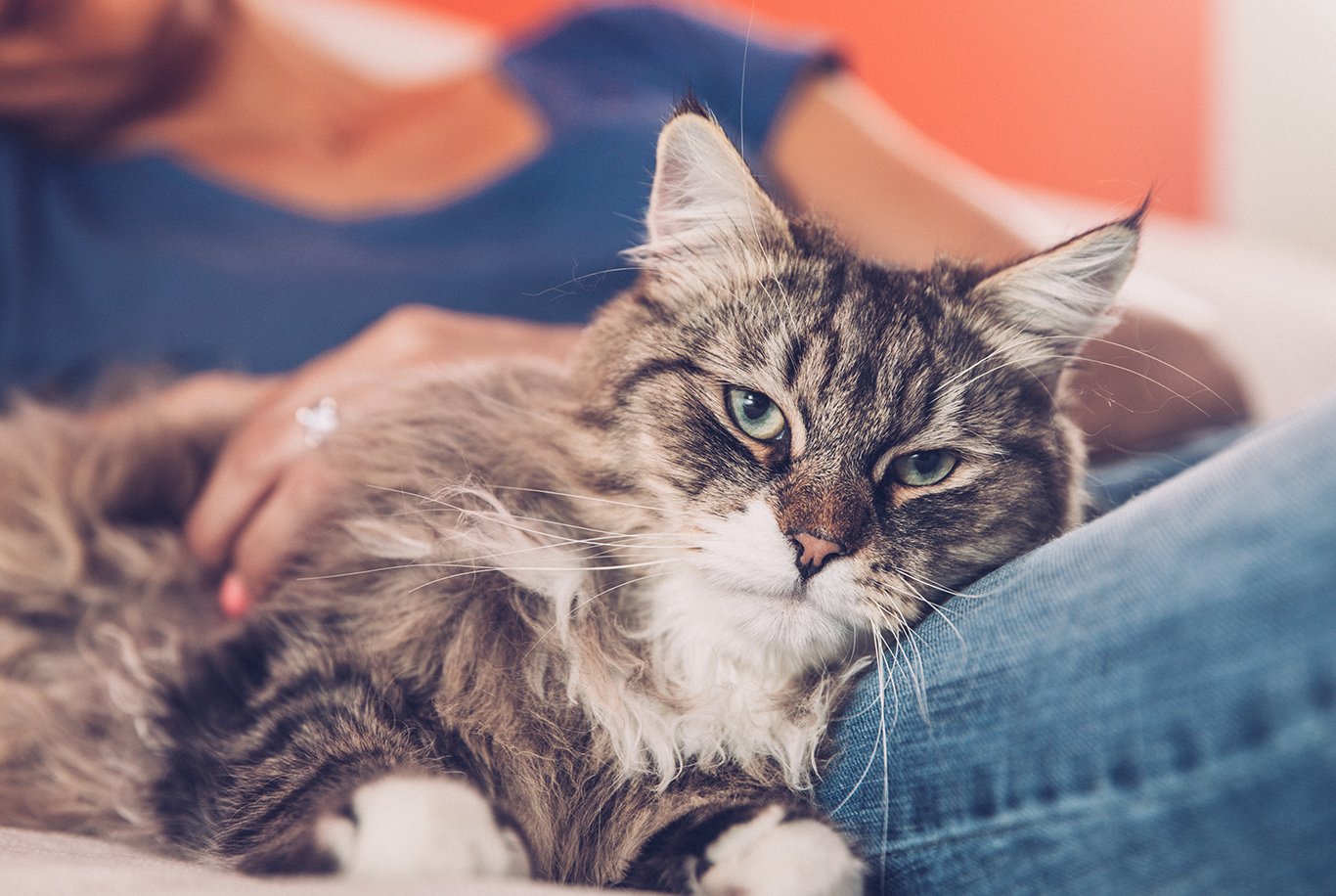
Siberian cat is a landrace of domesticated cats from Russia. This breed originally comes from Siberia and it developed all by itself without human participation.
 Country of origin: Country of origin: |
Russia |
 Personality: Personality: |
Energetic, Active, Even-tempered, |
 Coat: Coat: |
Longhair |
 Colour: Colour: |
Seal point, Blue point, Lilac point, Chocolate point |
 Characteristics: Characteristics: |
Point colouration, Blue, almond-shaped eyes, Triangular head, Large ears |
 Life expectancy: Life expectancy: |
from 11 to 18 years |
Siberian cat kittens
Siberian cat kittens are energetic and active, they love to play, can enjoy various activities involving water and can quickly pick up tricks that can keep their smart brains in good condition. Siberian cats are great at jumping, so these felines will need their tall cat trees as soon as possible, otherwise, you will find them climbing bookcases, perching on doors or any high points in your home. In their first year kittens grow rapidly, so feeding a well-balanced diet composed of healthy and natural ingredients is vital for your kitten’s health and proper development. Kattunge from Husse range is a dry kitten food that will supply your kitten with all the necessary nutrients and all vital supplements, such as taurine for eyes and heart support.
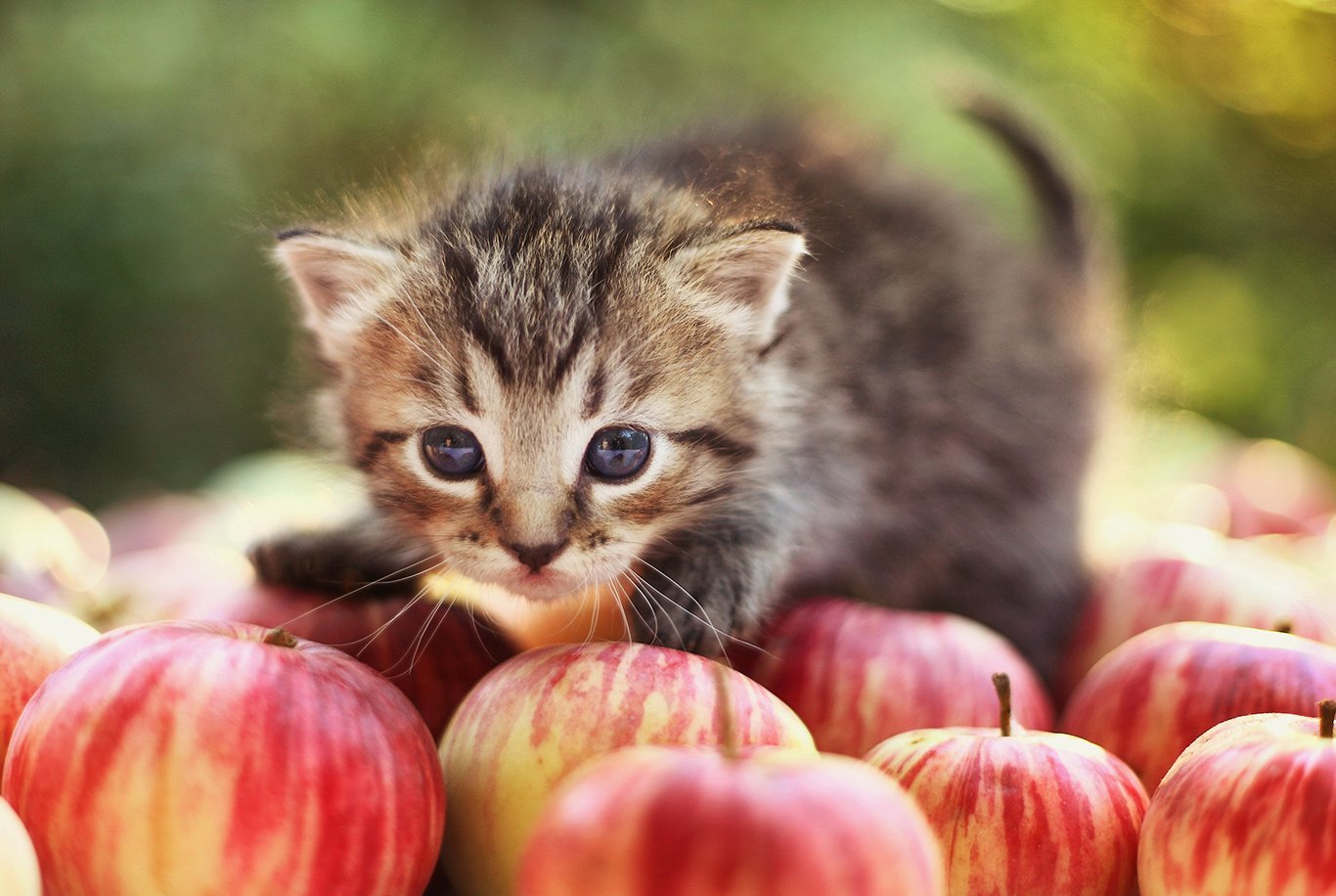
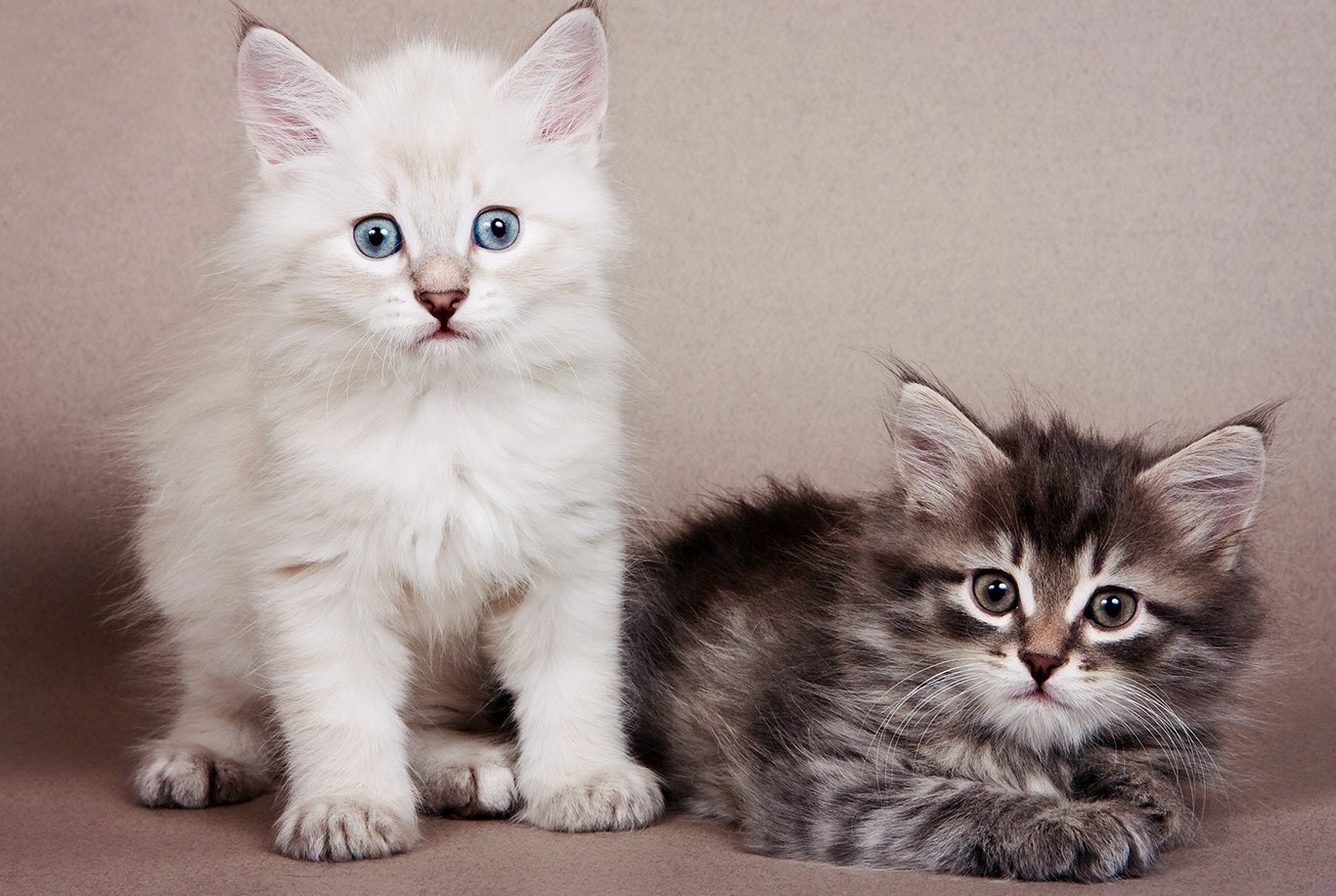
Siberian cat’s nutrition
Since Siberian cats are typically active they do require a well-balanced diet that will fulfil all their dietary needs. Exclusive Lyster Care can be a great maintenance food for your Siberian. To promote good coat health of your longhaired Siberian you can supplement your feline’s diet with Laxolja natural salmon oil that is rich in Omega-3 fatty acids.
Opus Farm | Complete, grain free nutrition for active dogs with sensitive stomachs
Opus Lynx | Complete, grain free nutrition for adult cats
Detailed description of Siberian cat
Siberian cats are native cat breed from the taiga of Siberia. This breed has a long three-layered coat to protect them from harsh winters. Siberian cats have been known in Russia for approximately 1000 years and are often mentioned in Russian folktales.
Genesis
Siberian cat is a landrace of domesticated cats originating from Siberia. The first mentions of large and strong cats with a thick coat allowing them to withstand extreme colds date back to 16th century. Siberian cats were brought the United States in 1990, but the costs of importing cats from Russia keeps this breed relatively rare outside Europe to this day.
Appearance
Siberian cats are big and strongly built cats with long and muscular hind legs making these cats very agile jumpers. Because of the significant difference in length of their legs, Siberians have visibly arched backs that supposedly contributed to their great agility and athleticism. Their fur is textured but glossy, which decreases the occurrence of matting, and have water-repelling quality. Siberian cats’ tails are wide and covered in thick fur. Their fur is most commonly agouti coloured, where each hair strand is coloured with bands of black, brown and yellow. This usually results in a tabby brown Siberian cat that is either striped, spotted or blotched. Siberian cats have trapezoid-shaped heads and broad foreheads. Their ears are slightly rounded with tufts of hair at the tips.
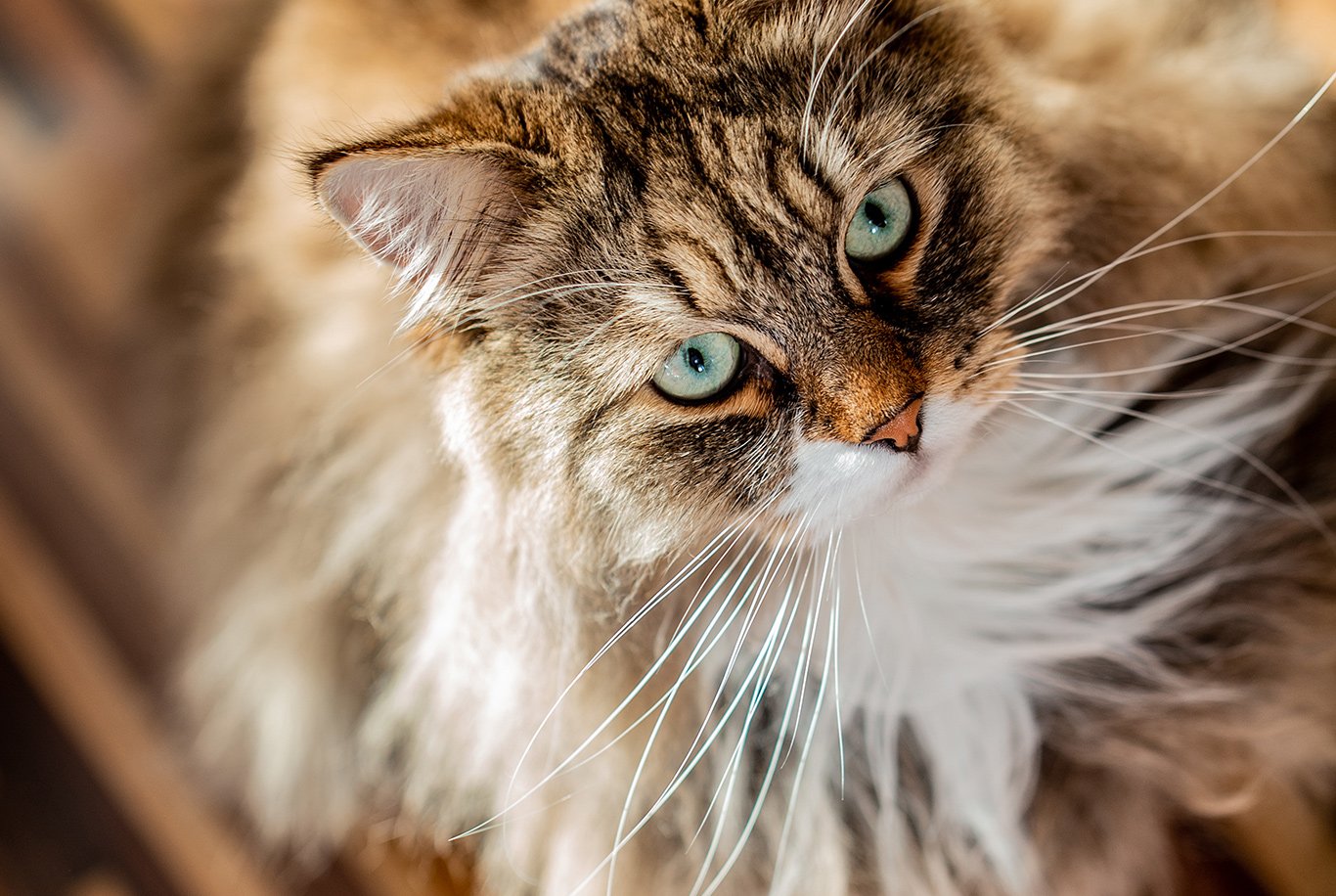
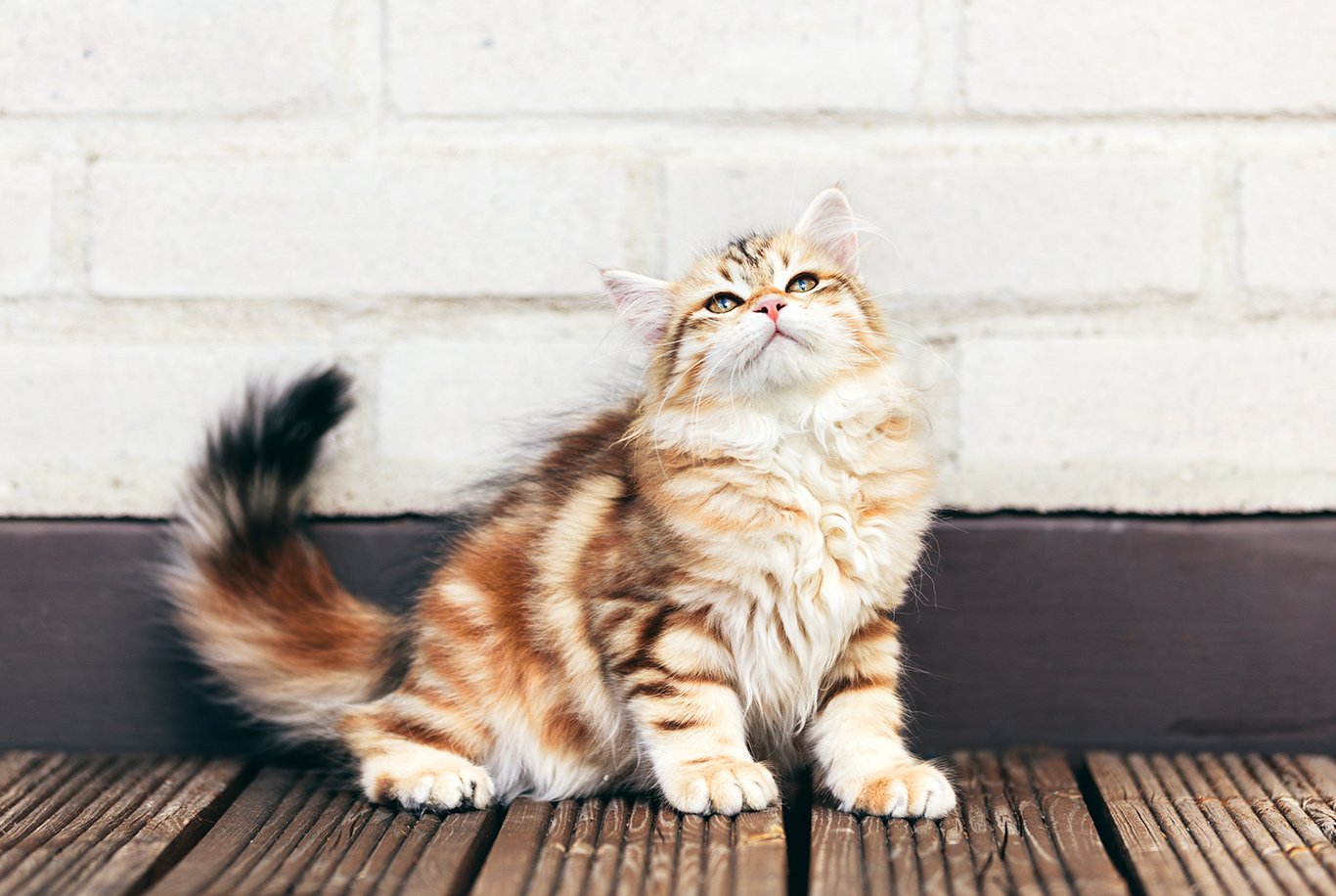
Behaviour
Siberian cats are active and playful and will happily participate in a game of fetch. These highly athletic and agile cats can often be found perching on top of the highest point in the room. They are quite clever, so teaching your Siberian cat tricks can be a fun way to exercise your feline’s brain. Keep your personal belongings out of your cat’s sight and provide many toys, as these cats love to play with anything they can get their paws on. These felines will also enjoy playing in and with water. Besides being playful Siberian cats are very loving and affectionate. You can expect a cat of this breed to follow you around everywhere you go and take part in any activity. These cats should generally feel quite comfortable around strangers. Though Siberian cats love the attention, they are not needy in any way. They will wait patiently until you can devote some time to them.
Requirements
These smart and active felines will need daily physical and mental stimulation to keep them in the best shape possible. As they are avid jumpers you will have to provide your Siberian cat with a tall cat tree for jumping, climbing and perching. Though cats of this breed are rather affectionate they are not needy in any way. They will wait patiently for you to pay attention to them, so remember to spend some time with your cat.
Daily care
Siberian cats have a long and three-layered coat that does not mat too easily, so brushing a couple of times a week should suffice. During shedding season some additional brushing can help get rid of the dead hairs and prevent hairballs forming in your cat’s digestive system. Since Siberian cats have a long coat on the tail as well as britches you may have to check occasionally for faeces stuck in your cat’s fur. Long fur in between Siberian cat’s toe pads can hold excess dirt and cat litter, so make sure to check your feline’s paws and clean them with wet wipes made specifically for cats.
 dr Anna Plummervet and blogger
dr Anna Plummervet and blogger
































